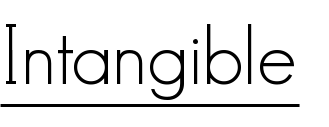| |
Would you lend money to an untrustworthy
person?
Would you sign an employment contract with someone
you don’t trust?
Would you have confidence in an unreliable person
as a partner?
Would you continue to be a good friend of such
a person?
Everyday we are living our lives questioning
ourselves along these lines. The good heart of people we believed in until yesterday
can change today, and our relationship collapse instantly, whether it is with a
family member or others. Little wonder such things happen; even my own heart
wavers and changes like the four seasons.
Everyone experiences trouble and stress
dealing with the “trust / confidence” problem. Since, as I believe, it would be
no exaggeration to say 80% of suffering in life results from this, we must at
all costs find a way to alleviate the mental blow.
Most people confuse trust with confidence.
Certainly the two things have something in common. Trust and confidence are
born when relationships form. Starting from an indeterminate state, with no
guarantees and many risks, you build high expectations and seek outstanding
results. But if you consider the two words separately, you are more likely to better
appreciate the actual meaning of each.
Trust is more an official or public condition,
like a tangible relationship, whereas
confidence is an emotional and private state
of mind, i.e., intangible.
"What is trust?"
The term is often used in our public
relationships, such as money matters, employment contracts and sales
transactions. In order to make a relationship with the other party clear and transparent,
on paper, a contract or certificate, an agreement in writing, is created with a
deadline and conditions to be met without fail. Where do our emotions come into
this? When problems arise, public institutions such as courts, the police, fair
trade tribunals, labor standards offices, lawyers, administrative scriveners et
cetera are expected to resolve the questions in dispute. If you meet your
obligations as prescribed on paper, the relationship is fulfilled. It is a
“cool” relationship once completed.
We should be prudent enough to retain tangible documents such as registry certificates,
contracts, insurance policies, wills, licenses, passports, seal stamp certificates
until their valid dates have expired.
Preoccupied with the demands of everyday life,
how often do people end up desperately searching for documents when they suddenly
become necessary? Even if hubby knows their whereabouts, it becomes a problem if
his wife does not know.
Some newly married couples today even include
in their marriage contracts commitments to “take in and care for wife/husband’s
parents", or to “lose 10 kilograms of weight each” and so on. It is very
young and humorous, is not it?
"What is confidence?"
Human emotions and thought are involved, but there
is no timeframe. You rely on and believe in the other person’s mind and heart,
and there are no conditions or qualifications. It is truly an intangible relationship. Most human relationships
are based on family connections, friendship or collegiality, and such close
relationships are intimate and emotive rather than “cool”.
There is a wise proverb, “Yesterday’s friend
is today’s enemy”. While a relationship of this type prospers, positive
feelings such as happiness, security, hope, satisfaction and dreams overflow;
once it collapses, however, it quickly burns and turns black. This causes
considerable mental and physical damage, and the recovery process, often
involving separation, breaking off, disappointment, resentment et cetera, is
not easy. Sometimes you feel beyond hope of recovery. We must build delicate
relationships, as fragile as a spider's fragile web that might to be broken at any
time, applying our best efforts and understanding. Like the dog Hachiko whose
statue sits outside Shibuya Station in Tokyo, a legendary model of fidelity, I
want to trust my late husband unconditionally and teach my heart to keep on
longing for him until the day I die.
It is good to know that nothing stands between
our closest relationships with people: no money contracts are needed. Rather,
you learn "what you do" and "how it should be" from a
lifetime of living.
|
|
